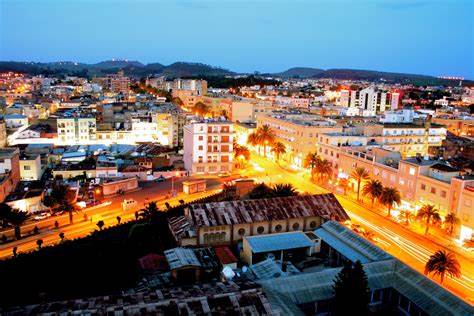Eritrea, a small African nation located in the Horn of Africa, is prominent for its diverse culture, and spectacular landscapes.
Eritrea is bordered to the south by Ethiopia and Djibouti, Sudan to the west, and the Red Sea to the east. Its strategic location along the Red Sea coast positions it as a gateway for maritime trade.
According to the AFDB, its GDP is projected to grow by 3.1% in 2024. The economy of Eritrea is primarily based on agriculture, accounting for about 20% of its GDP and with approximately 80% of its populace employed in this sector. Major crops grown in Eritrea include sorghum, millet, barley, and wheat. However, due to limited arable land and water resources, agricultural production remains largely subsistence-oriented.
In recent years, mining has emerged as one of the main sectors contributing to Eritrea's economy. The country possesses significant gold, copper, zinc, and potash deposits. Various international companies have invested in Eritrean mines, increasing government revenues through taxation and royalties.
Additionally, the tourism sector has shown potential for growth as well as the fisheries industry due to the extensive coastline stretching along the Red Sea. Despite these positive prospects, Eritrea faces challenges such as limited infrastructure and restrictive government policies that hinder private sector development and overall economic growth.
Security Issues:
Eritrea is bedeviled with numerous security challenges ranging from internal conflicts to external geopolitical dynamics. Internally, the country has struggled with political repression and human rights abuses, leading to mass migrations and regional instability. According to Human Rights Watch, unlawful, prolonged, and abusive detention, forced conscriptions and forced labor persists in Eritrea.
Additionally, Eritrea's strained relations with neighboring countries like Ethiopia and Djibouti have resulted in border disputes and intermittent armed conflicts further jeopardizing regional security. Eritrea’s military presence in the Tigrayan region of Ethiopia could jeopardize the fragile peace in Ethiopia. Furthermore, Eritrea's strategic location makes it vulnerable to transnational threats such as terrorism, piracy, and human trafficking.
Verdict:
Eritrea needs a new direction one that is built on the rule of law and respect for human rights. With more political openness and independent institutions, the country’s vast resources would attract the needed foreign direct investment (FDI). Risk is significantly high.
